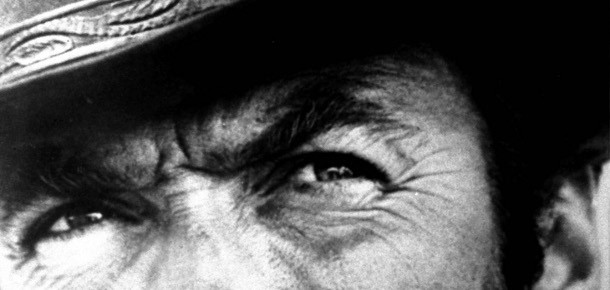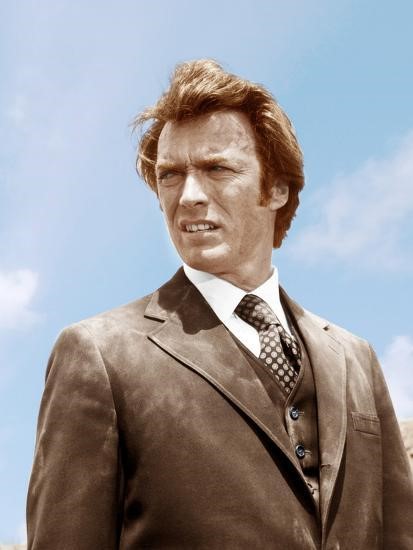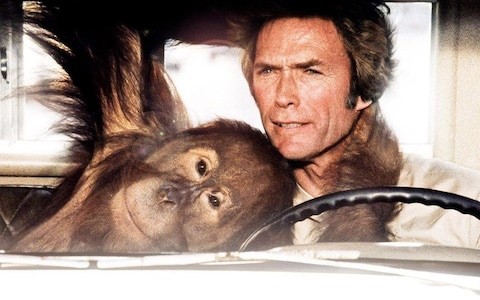1 March 2019

I’ve learned a lot from Clint Eastwood. For example, how hard it is to keep track of the bullets that you may have fired when in a comparatively stressful situation. Never to laugh at someone’s mule. Why Harry Callaghan is known as ‘Dirty Harry.’ If I want to play the game, then I need to know the rules. That tough ain’t enough and never to stand on the right side of a well-trained orangutan. It is probably acceptable to share that, as a callow first year (Year 7 for younger readers), my friends and I used to re-enact scenes from Sergio Leone’s Man With No Name trilogy on the schoolyard. No on e wanted to be Lee Van Cleef, everyone wanted to be Clint. Or Bruce Lee.
e wanted to be Lee Van Cleef, everyone wanted to be Clint. Or Bruce Lee.
As a newly appointed Headteacher, however, I feel that there is little that I can replicate from Clint’s many roles that will help me to lead more effectively. My reason for sharing this is that in a recent Guardian article the journalist Fiona Millar harked back to the days of the ‘Superhead.’ (About 10 years ago). This interpretation of school leadership was exemplified by the then Chief Inspector of Schools, Michael Wilshaw, who, in 2011, identified Clint Eastwood as the ideal role model for aspiring Headteachers. At a conference he suggested that; ‘Being a headteacher is all about being the lone warrior and fighting for righteousness – fighting the good fight." Dismissing the idea of "distributed leadership" he argued that Clint would have rejected any notion of working as part of a team. Whilst I’m sure that students would have undoubtedly be silent on the corridors if Clint were patrolling in his poncho, The Good, the Bad and the Middle Ability (then lunch duty in the Atrium) doesn’t seem to fit with Mr Wilshaw’s view of the lone gunslinger.
There are many good role models in education and I have been fortunate enough to work for some excellent Headteachers. I haven’t missed working for the Man With No Name, but I have learned a lot from working for ethically minded, kind and wise individuals. None of them have modelled their leadership style on Clint. Or Charles Bronson, the Rock or Jason Statham come to think of it. They have all believed in the need to develop others as leaders and have developed a sense of collective endeavour.
Fiona Millar’s article featured an interview with Carolyn Roberts, Durham Johnston’s head between 2005 and 2013. In the article, Carolyn identifies the need for shared values for school leaders and explains her role as one of the key figures in the Ethical Leadership Commission. Exam results are, of course, very important she argues, ‘. but we can’t get away from the fact that schools are communities that ought to model what we value…. It is about ensuring that children see adults treating each other in a just, wise and kind way, modelling the sort of behaviour we would want to see in society.’
https://www.theguardian.com/education/2019/feb/19/new-behaviour-code-schools-guide-headteachers
The values outlined by the Ethical Leadership Commission are linked to the Nolan Principles of Public Life and match the characteristics that we hope that our students will develop in their time at Durham Johnston. Those values are trust, wisdom, kindness, a commitment to justice, service to others, courage and optimism. All are more attractive than being a ‘lone warrior.’
As a newly appointed Headteacher (and human!) these qualities matter enormously to me and they are values that will underpin the school’s development over the next five years. Whilst some school leaders might enjoy the idea of replicating Dirty Harry in assembly and asking year 9 if they feel lucky (well do you….?) I would rather base my approach on one of Harry Callaghan’s rare reflective moments from Magnum Force; ‘a good man always knows his limitations.’
